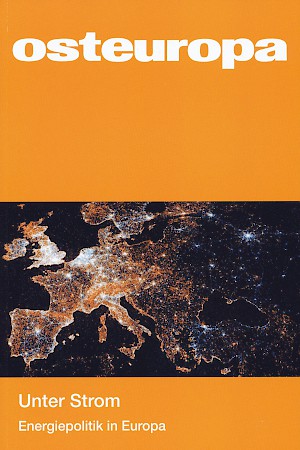Russia’s Rise to Energy Great Power
A History of Pan-European Integration
Deutsche Fassung
Abstract
Despite the conflict over ideology, the Bolsheviks exported oil to the capitalist West. In exchange, they received foreign currency and technology. Little has changed in the structure of this exchange. In the mid-1950s, the Soviet Union gained influence in the European oil market. But it was only in the early 1970s, with the development of gas deposits in western Siberia, that the rise of the Soviet Union as an energy superpower began. This was fostered by the policy of détente and the idea of “change through trade”, as well as by the perception among West Europeans that energy supplies from Eastern Europe were more reliable than those from the Middle East. Today, the question is how to deal with energy dependence. There is no way around Russia’s raw materials.
(Osteuropa 7/2013, pp. 5–28)



